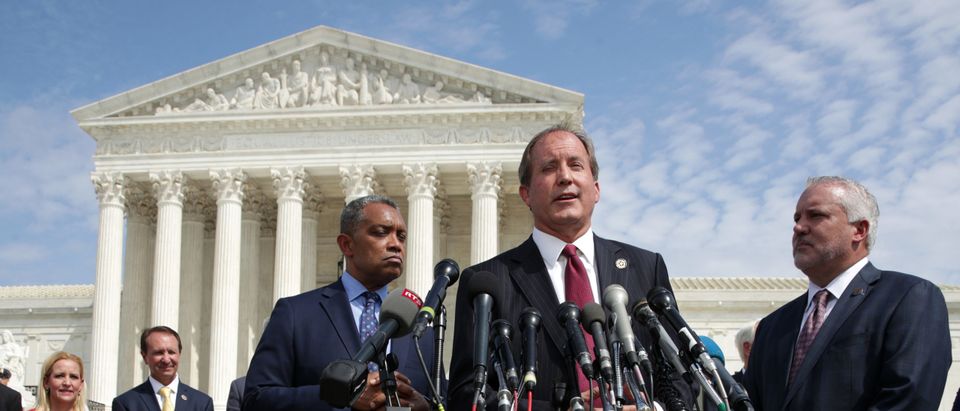Texas Attorney General Ken Paxton filed a motion and temporary restraining order Friday in the U.S. District Court for the Southern District of Texas in a bid to overturn the Department of Homeland Security’s (DHS) temporary freeze on deportations.
“In one of its first of dozens of steps that harm Texas and the nation as a whole, the Biden administration directed DHS to violate federal immigration law and breach an agreement to consult and cooperate with Texas on that law,” Paxton stated in a press release.
I told @DHSgov and @JoeBiden last night to rescind its deportation freeze, which is unconstitutional, illegal, and bad for Texas and the nation.
They didn’t budge.
So #Texas is bringing them to court. Here’s our lawsuit: https://t.co/oR2cfG85Bz
— Texas Attorney General (@TXAG) January 22, 2021
Acting DHS Secretary David Pekoske signed a memorandum Wednesday directing component agencies to review and reset enforcement policies. DHS announced later in a press release that deportation proceedings for most illegal immigrants would be temporarily halted for 100 days.
Paxton stated in a letter to Pekoske that the halt on deportations violated a previous agreement signed in December between the state of Texas and the DHS under the Trump administration. Under the contractual agreement, the DHS is obligated to consult with the state before making any changes to its immigration enforcement policies. (RELATED: Rubio Sends Letter To Biden’s Acting DHS Secretary Demanding Explanation For Deportation Freeze)
The motion filed by the state attorney general argues that Texas faces “imminent and irreparable harms” as a result of the policy change. It also calls on the court to declare the deportation freeze unlawful and issue a preliminary injunction on further changes to immigration enforcement policy.
It is unclear whether Paxton’s motion would be granted by the court. The agreement signed between the Trump administration and Texas was the first of its kind and federal courts have not ruled on such agreements between states and the federal government.
Yale Law School professor Christina Rodriguez said the agreement between Texas and the Trump administration is likely no longer enforceable as it interferes with the federal immigration laws enforced by the current Biden administration.
“It’s certainly not a bad idea for the federal government to consult states who are affected by immigration changes,” she told The Wall Street Journal. “But forcing the federal government to do so allows states to drive the enforcement agenda and makes it impossible for the federal government to make changes.”


